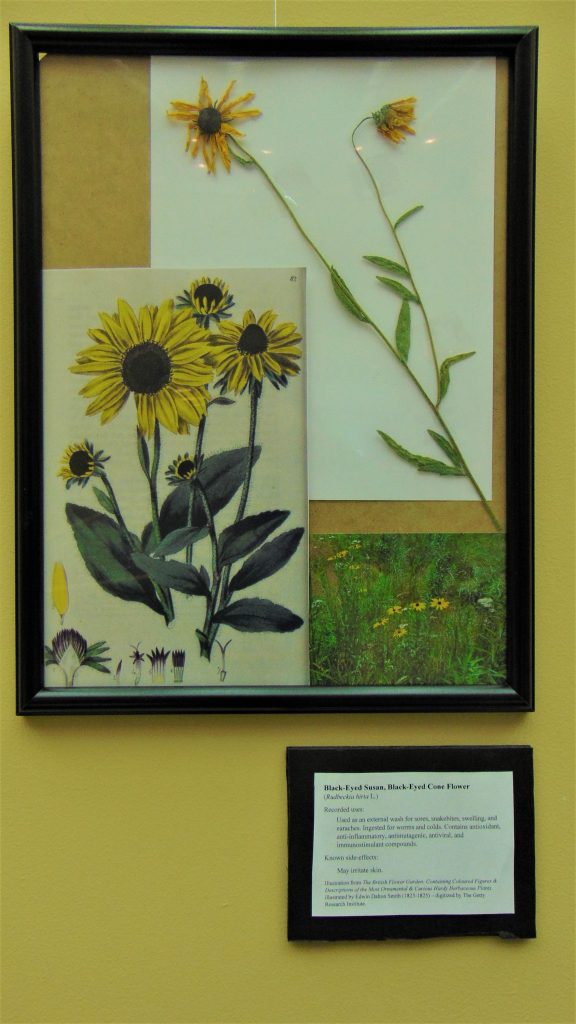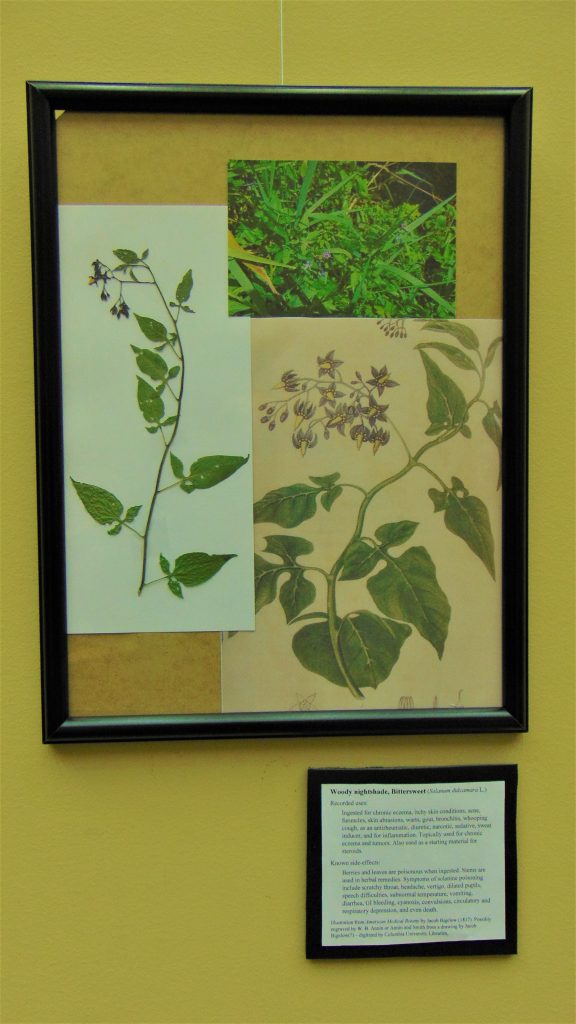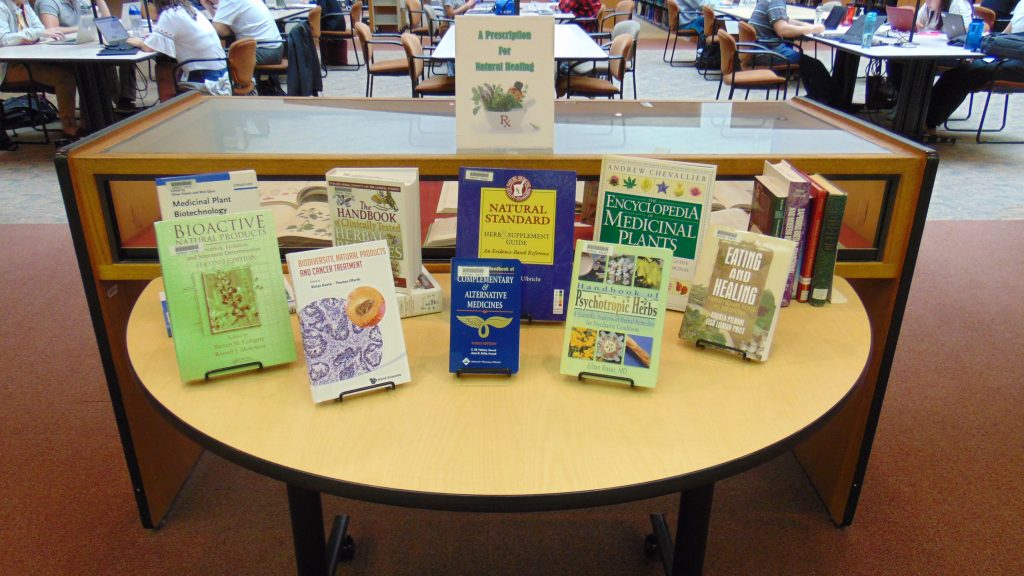Aug
09

Posted by NNLM Region 7 on August 9th, 2017
Posted in: Blog
TLDR: Medicinal Flora of Massachusetts an exhibit at Lamar Soutter Library from August 1-September 30. As part of the exhibit, Dayne Laskey from the University of Saint Joseph School of Pharmacy will be presenting “The Medicine Garden: Bioactive plants of the past, present, and future” at UMass Medical on August 22.


Wouldn’t it be great if we had medicinal plants in the medical library, was the thought that crossed my mind before I created a proposal to host a medicinal plant exhibit at the Lamar Soutter Library. The Library provides a unique exhibition space frequented by the Worcester medical community and biomedical researchers as well as members of the public. I have a background in botany and a keen interest in medicinal plants in particular. Having recently moved to the area, I saw the exhibit as a great opportunity to familiarize myself with the local flora while gaining further project management, event marketing, research, and networking experience. Through the exhibit, I have expanded the library’s network of outreach partners and collaborators by reaching out to local organizations to gather materials for the exhibit. The exhibit also showcases our holdings, provides a unique and innovation educational resource to the UMass Medical School community and surrounding Worcester area, and provides an aesthetically pleasing display for the shared school/hospital space used for work and relaxation. The exhibit will also hopefully attract new patrons into the library from UMass Medical, UMass Memorial, and the general public.
The exhibit features native and naturalized medicinal plants from around Massachusetts, highlighting both their historical and modern uses as herbal remedies along with their sometimes deadly side effects. Each pressed plant specimen is accompanied by an illustration, a photograph of the plant, and a short description of its medicinal properties and side effects. The intention of presenting each plant in three ways is to give the viewer a better understanding of each species. Historically, someone wishing to find these herbs would need to rely on a written description or illustration. Today, many plant guides come with photographs which offer one static view of the plant. The pressed specimens allow one to see the minute details such as hairs on the stems and how the leaves are attached. The books that are displayed alongside the exhibit showcase the variation in plant illustration and some of the medicinal plants that were not collected.

Native plants in Massachusetts have been used in herbal remedies by Native Americans for centuries and European settlers prospered from the medicinal plants they found in North America and brought from home. The need to know and understand the medicinal properties of plants is not just ancient history. Herbal remedies are still used today and can be found on drug store shelves as teas, herbal remedies, and components of manufactured pharmaceuticals. Herbal remedies can work alongside modern medicine if doctors and caregivers are informed of the benefits and possible side-effects that may be exhibited by their patients. This is only possible if patients also tell their doctor about herbal remedies they are self-prescribing. Ongoing research is discovering new plant species and new plant-based bioactive chemicals every day. Hopefully, this exhibit will better inform both patients and caregivers and spark the imagination of researchers to the endless possibilities presented by the plant kingdom.
The Medicinal Flora of Massachusetts exhibit is located on the first floor of the Lamar Soutter Library, UMass Medical School, 55 Lake Avenue North, Worcester, MA, and will run from August 1-September 30. As part of the exhibit, Dayne Laskey (PharmD, DABAT), Assistant Professor of Clinical Toxicology at the University of Saint Joseph School of Pharmacy, will provide an introduction to medicinal plant uses and the University of Saint Joseph School of Pharmacy’s evidence-based medicine garden during his talk, “The Medicine Garden: Bioactive plants of the past, present, and future” on August 22nd from noon-1pm in Amphitheater I (S2-102) at UMass Medical School. All are welcome to attend.
By Tess Grynoch
Library Fellow, Lamar Soutter Library, UMass Medical School
 ABOUT NNLM Region 7
ABOUT NNLM Region 7